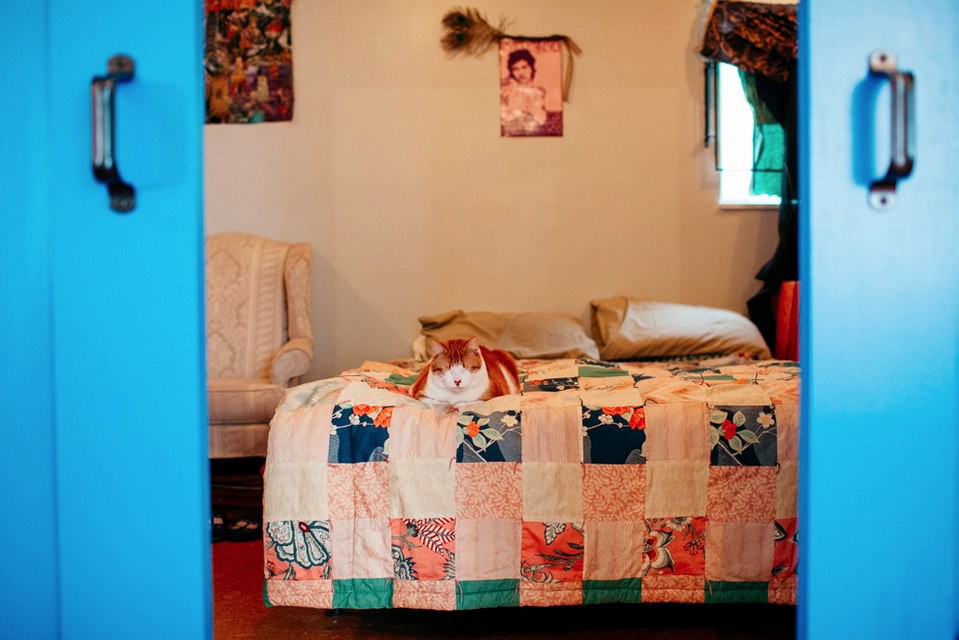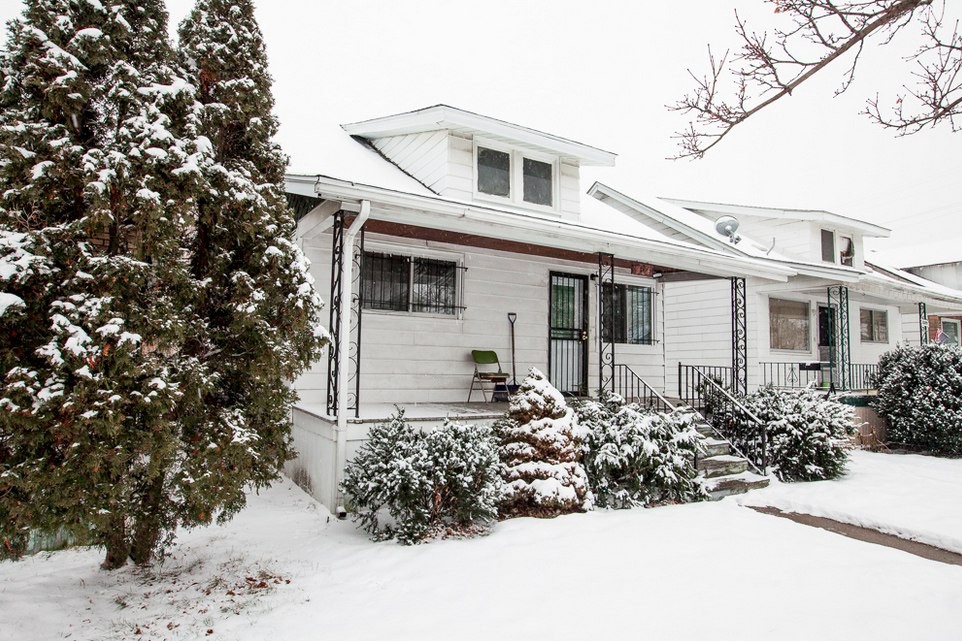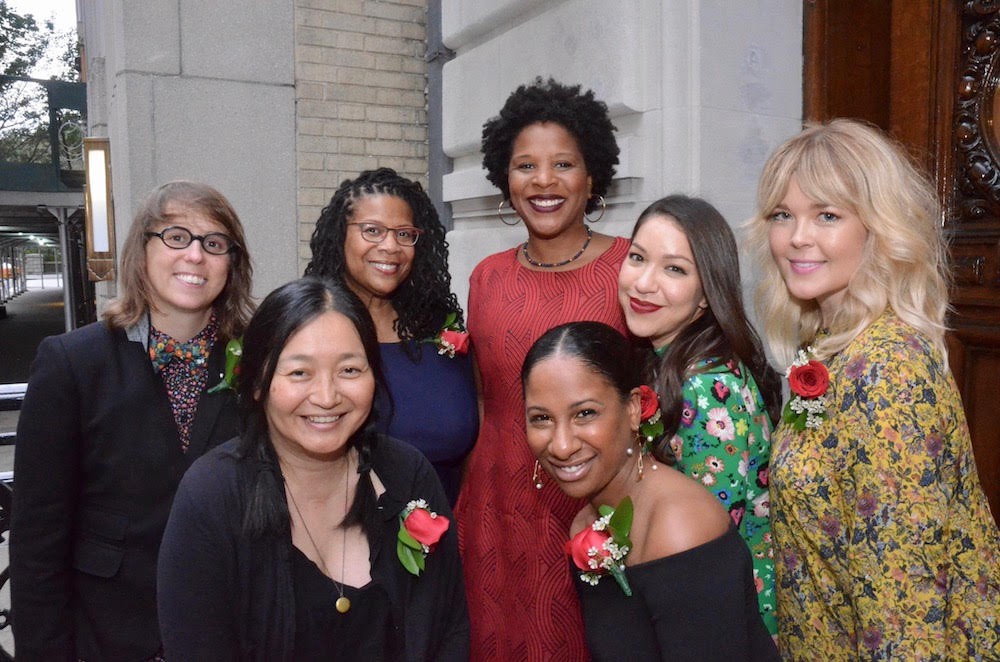essays
Expanding the Detroit Literary Community by Giving Free Houses to Writers

Home ownership is a distant dream for many, especially writers who couldn’t think of getting together a down payment from lit mag contributor copies, let alone the employment stability to make regular mortgage payments. Enter Detroit fairy godmother Write a House, a nonprofit that thinks dedicated writers deserve not only a room of their own, but an entire home.
Write a House was founded in 2012 by Detroit residents Sarah Cox and Toby Barlow with, as their website states, “the intent of providing vocational training to local youth who would renovate vacant foreclosed homes. Then the homes would be given away to writers.” The organization held its first call for applications from writers last year, and in September of 2014, they awarded their first home to poet and historian Casey Rocheteau.
The second application round is now open, with another house (or maybe two, depending on funding and renovation schedules) soon ready to be given away to a needy writer. You just need to get your compelling application submitted no later than midnight on June 5, 2015. To apply, you need to be at least 18 years old and a low or moderate-income writer with some history of publication (though writing need not be your full-time occupation). Accepted writers only pay property taxes and bills such as electricity, water, and internet — they are expected to maintain and live in the house for two years, and then the house becomes theirs.

Where do these homes come from? you may ask. I had the same question and asked Write a House Director Sarah Cox, who told me, “The first two we bought in a Wayne County foreclosure auction, and the third one came from the Land Bank, which is sort of a quasi-government branch that is tasked with turning over foreclosed properties back to private ownership. We’re probably getting the rest of the houses through the Land Bank as well.”
I asked how Write a House has been received in Detroit so far, especially considering the touchy issue of dealing in foreclosed homes. Sarah admits, “There’s been some skepticism and there’s been a little bit of that general concern over what does it mean to be dealing with a foreclosed house, but generally we’ve been well-received. We’ve been really fortunate in making people understand our intentions behind what we are trying to do. The foreclosure process has happened, and unfortunately we can’t go back and give those people their homes back. So we’re either stuck with them being empty, or we can put a writer in it.”
The idea behind Write a House, says Sarah, is “about wanting a stronger literary community, but also about wanting stronger neighborhoods with less boarded up houses.”
Write a House is working to build the city in other ways via its local partnerships. For example, the homes are refurbished with the help of the nonprofit Detroiters Working for Environmental Justice, which does training to make underemployed people employable in the construction industry. As Sarah tells me, “We’re just trying to partner with people to create more job stability within the construction field.” So not only is Write a House offering permanent space to writers, but they are also offering training and job opportunities to workers who can theoretically use those skills for revitalization projects around Detroit.

I asked inaugural Write a House homeowner Casey Rocheteau if she has any advice for applicants in the current cycle. She replied, “Do you want to live in Detroit? If you’re not sure, or haven’t been to Detroit, you really have to consider it.” Casey, who relocated from Brooklyn, had visited Detroit herself prior to applying only once, very briefly in 2007. “I was looking for a different pace of life than NYC when I applied. I have always been intrigued by Detroit’s history and culture. To me, Detroit was a kind of African American mecca. All that has been said or could be said about it had a pull for me.“
Sarah Cox assured me that they take the answer to the application question “Why do you want to move to Detroit?” very seriously. “If the answer is ‘I like free houses,’ that’s great, but you might get here and have a complete meltdown, and I don’t want that. You kind of have to know what you’re getting yourself into, and it’s not just a free house, it’s a whole city you have to engage with.”
I asked Casey if there was anything that surprised her about her new hometown, and she said, “Even though I was aware of how big the city is, I was surprised at how difficult it is to easily get around without a car. You can spend hours waiting on buses. I was also surprised by how friendly people are overall. It’s very different from the Northeast in that way.”
Casey added, “I think it’s important that people grasp that while after two years you have a house in your name, it’s about more than that. I think the opportunity alone is worth at least applying, especially for folks who are already in Detroit. Also, it’s not as if Write A House is leaning over your shoulder trying to check your page count every week. There’s a lot of freedom in it, which I love.”
As far as Casey’s involvement with Write a House in the past year, she’s taken on the task of contributing to the organization’s blog, but this was borne out of her own interest and was not a requirement of her award. Her incredibly informative posts contain a lot of great links for information in Detroit, as well as some tips for potential applicants.

Casey has been connecting with the vibrant poetry scene in Detroit. When I asked her how she would describe the Detroit literary scene, she replied, “Eclectic. I have seen a wide range of voices in the literary scene — experimental, beatnik old-school, hip hop influenced, lyric, futuristic, graphic fairy tales, boisterous and quiet. Some of the best writers I know are in and around Detroit, so it’s been exciting seeing folks read and hearing voices that are new to me.”
As Sarah explains, Write a House is “trying to make people aware there is an existing writing community in Detroit. We’re not creating a writing community out of scratch, we’re trying to add to the outstanding voices that are already here.”
Write a House received 350 applications last year and expects a smaller number of applications this year, in part because they have instituted a minimal $25 application fee to help subsidize the organization’s costs (the fee was $15 for the first two weeks of the cycle, and there was debate amongst the board about instituting an application fee at all). As of my conversation with Sarah on May 22nd, Write a House had received 84 applications in the current submission period.
So get those applications together and apply by the June 5th deadline. While the overwhelming majority of applications submitted so far have been fiction applications, Write a House is seeking applications in not just fiction, but poetry and nonfiction as well. You must be a US citizen or otherwise legally able to reside in the US to apply, as unfortunately Write a House does not currently have the resources to assist with immigration issues. If you would like to assist in the renovation of the second home to be awarded, Write a House is accepting donations on Fundly.








